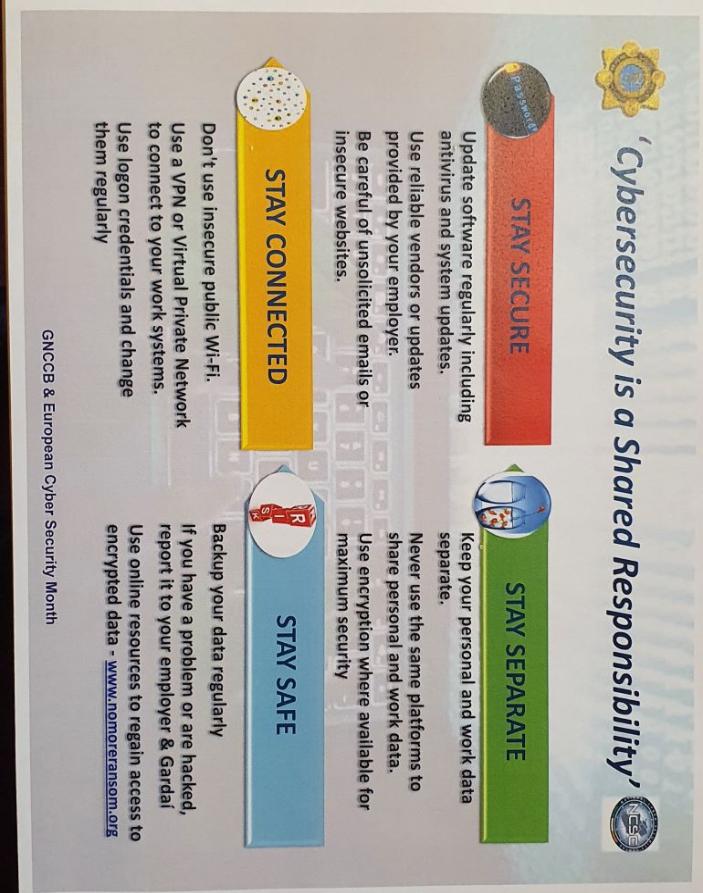|
|
Detective Chief Superintendent Paul Cleary, Garda National Crime Bureau, sets out details of the work of the Bureau and links to help and advise available to the public
|
The increase in the number of people working from home, has seen a rise in the number of cyber-enabled crimes such as online frauds or harassments. At the same time, workers who are now home-office based can be less cyber safety aware, mixing work and personal online activity or devices which can lead to a greater risk of cyber-dependant crimes such as data interference or computer hackings.
The Garda National Cyber Crime Bureau is responsible for investigating attacks on computer networks and critical data which can have a serious impact on a business or critical infrastructures and networks. GNCCB also supports investigations into online abuse against adults and children who are most at risk from exploitation. The primary forms of online crime are phishing frauds seeking personal or bank information, and ransomware attacks where data is encrypted and a ransom is demanded before the data will be released. Cybercriminals don’t care who they target or what the impact of their crime will be. They only care about the money and will target anyone or any organisation they think will or can pay.
The Garda National Cyber Crime Bureau’s advice to online users and companies is simple
Further advice and support are available from the following online resources
www.garda.ie/cybercrime - for information and support about online crime protections
www.nomoreransom.org – solutions to data encryption by ransomware attacks
www.webwise.ie – for advice on online abuse and child protection
www.fraudsmart.ie – for advice on online and offline frauds and protections
